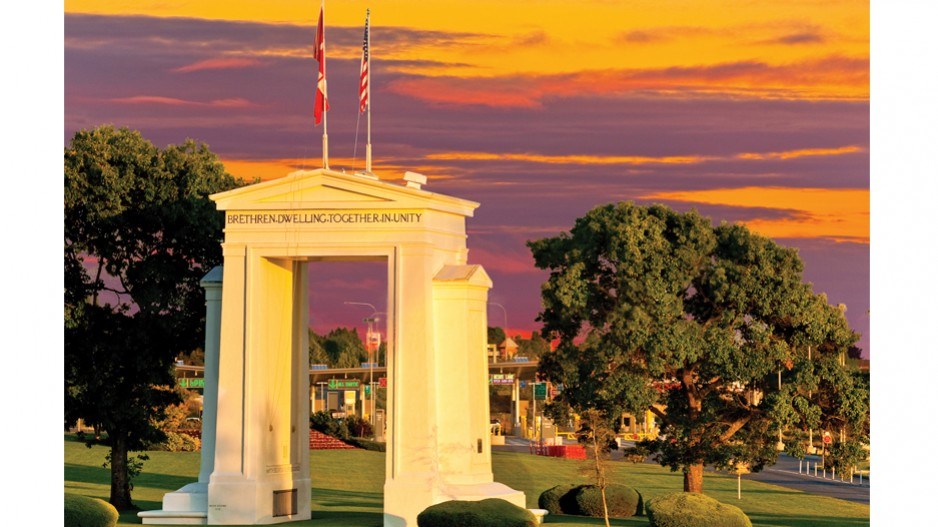With U.S. president-elect Donald Trump newly threatening a blanket 25-per-cent tariff on Canadian exports to his country, B.C. retailers are likely thinking a step or two ahead, and fearing what the Canadian government would do if Trump acts on his threat when he takes office January 20.
One possible Canadian response to Trump levying a 25-per-cent tariff on all Canadian imports to his country would be a blanket 25-per-cent tariff on all imports from the U.S. to Canada.
B.C. Premier David Eby, within hours of Trump's latest declaration, tweeted that if Trump makes good on his tariff threats "Canadians must stand united. Ottawa must respond with strength."
Retail industry representatives are thinking along the same lines.
"Probably we'd say the same thing as David Eby, and we'd probably be just as vague," said Greg Wilson, Retail Council of Canada's director of government relations for B.C.
"But I would say it would be better for Canadian consumers if we found a different way to retaliate [than with tariffs.]"
Tariffs, he stressed to BIV, are bad for consumers on both sides of the border as they inflate the price of goods.
Importers pay tariffs to national governments as they are an essential tax on the items. Retailers are then left to pass on the price increases to consumers.
During Trump's first term as U.S. president, he invoked targeted tariffs.
He slapped tariffs on Canadian steel and aluminum, which prompted the Canadian government to add tariffs to specific U.S. products, such as American whiskey. Many speculated at the time that Canada chose whiskey as a target because much production comes from Kentucky, which is the state that then-U.S. Senate leader Mitch McConnell represents.
"You'd want to figure out what would hurt [Trump] the most," Wilson said. "Obviously, it's not Kentucky things anymore."
The Republicans recently elected South Dakota Senator John Thune to lead them in Congress' upper house in the next administration.
Trump is known for being from New York but he has made Florida his home base for years.
"Maybe tariffs could be on Florida oranges," Wilson suggested.
John Anderson, CEO of Coquitlam-based Oppenheimer Group told BIV this afternoon that were Canada to levy a 25-per-cent tariff on all American fruits and vegetables, the net impact on Canadian consumer prices would be much less than 25 per cent.
That is because the products could come from other countries.
"The effect would be different on different products, depending upon where we have to go in the world to get them," he said. "If they're from a further distance away, we would have increased costs in getting them into the market."
Anderson's venture is one of the world’s larger produce wholesalers, with annual sales topping $1 billion.
He said the effect of reciprocal 25-per-cent tariffs between Canada and the U.S. (and potentially between the U.S. and Mexico) would be complicated.
Tariffs could crimp demand for Florida orange juice outside the U.S., prompting more supply for domestic American consumption. Oranges and juice from Peru, Chile and Argentina may therefore be more plentiful and available for Canadian consumers but transportation costs would be higher, Anderson said.
Mexican products could travel in trucks and be bonded so they could not be accessed on the route across the U.S. between Mexico to Canada.
"We're legally allowed to do that now, and could continue to do that unless [Trump] changes the rules on that, which he could," Anderson said. "He hasn't said that he would and I wouldn't think he would, but nowadays you never know what's going to happen."
Prices for the produce could also temporarily rise as new supply lines are forged, Anderson said.
The latest declaration of potential tariffs came yesterday when Trump threatened on his social network Truth Social that on Day 1 of his next administration he will sign necessary papers to put blanket 25-per-cent tariffs in effect on all Canadian and Mexican imports "until such time as Drugs, in particular Fentanyl and all Illegal Aliens stop this Invasion of our Country!" [stet]
Wilson urged the Canadian government to create a cabinet post to deal specifically with Canada-U.S. relations, and he said that a diplomatic resolution that keeps the tariffs from being put in place is the ideal scenario.
Anderson similarly said he thought that the tariff threat was Trump's way of setting up negotiations on border security.
If the U.S. does enact new tariffs on Canada, however, a tit-for-tat response from the Canadian government may be the most effective way for Canada to be in a bargaining position where it can negotiate an end to both countries' levies.
Wilson said Canadian Prime Minister Justin Trudeau is likely to tread carefully on invoking wide-ranging tariffs that would raise prices for Canadian consumers.
The next Canadian election is set for Oct. 20, 2025, although the country's minority government makes an early election possible. Trudeau's Liberal Party has long lagged the Conservative Party of Canada in election polls.



